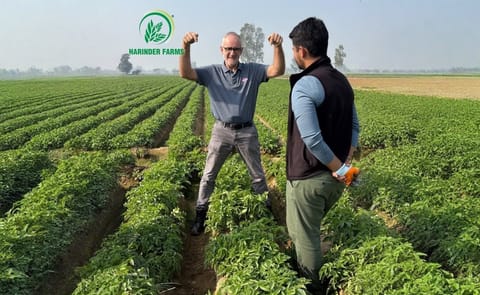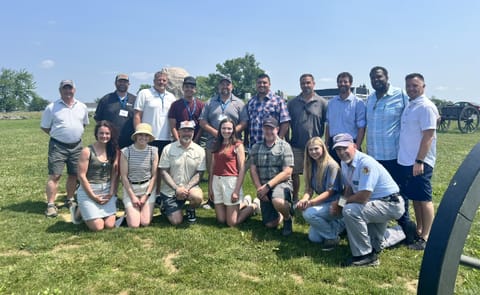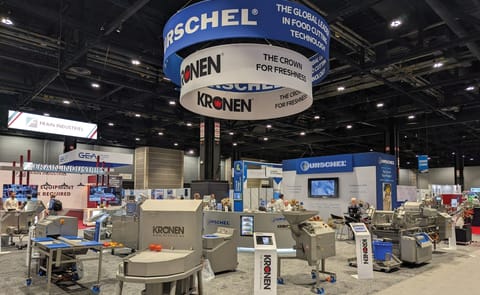Demonstration on Agronomic practices to People of Concern at Juru land in Nakivale camp
Agro-Nutrition: The role of orange-fleshed sweet potato in building resilient refugee communities in South-Western Uganda

As of 2024, the global refugee population has surged to 43.4 million, a significant increase from 41 million in 2010! Uganda, now hosting over 1.74 million refugees, has emerged as Africa’s largest and the world’s fifth-largest refugee host nation. This influx has placed immense strain on the country’s resources, with refugees facing constant vulnerability and heavy reliance on humanitarian aid.
Uganda has shifted its focus towards promoting self-reliance among refugees to mitigate this dependency. The gradual reduction in food aid and resources has catalysed this strategic shift. The United Nations High Commissioner for Refugees (UNHCR) and the World Food Programme (WFP) established a hub to coordinate aid efforts among various agencies and NGOs to support this transition.
In 2019-2020, the International Potato Center (CIP) and WFP, in collaboration with other partners, initiated an agro-nutrition pilot project. Recognizing the strong link between food insecurity and poor diets, the project aimed to improve the nutritional status of refugee communities and school children by promoting the cultivation of Vitamin A-rich, orange-fleshed sweetpotato (OFSP) within schools and refugee communities. The success of this pilot has led to the integration of OFSP into Uganda’s self-reliance model across South-Western Uganda in 2024.
A 2023 UNICEF report highlights the significant nutritional gap, with only 17.9% of refugees and 32.7% of host communities consuming sufficient Vitamin A-rich foods. However, a positive trend is emerging, as 69.6% of refugee households have embraced alternative livelihood strategies to complement government support, signalling a growing commitment to self-reliance and reducing dependency on external aid.
Towards a nutritious diet and commercial farming for orange flesh potatoes
The International Potato Center (CIP), in partnership with the World Food Programme (WFP) under the SeedEqual initiative, is playing a pivotal role in empowering refugee communities by providing initial planting materials, technical training in good agronomic practices (GAPs), nutrition education, value addition, and food processing skills. By providing initial planting materials, technical training in good agronomic practices (GAPs), nutrition education, and value addition skills, CIP and WFP are helping refugees to cultivate and utilize Vitamin A-rich orange-fleshed sweetpotato (OFSP).
Uganda’s Office of the Prime Minister, in collaboration with host communities, has allocated additional land to refugees, enabling them to grow OFSP for both household consumption and income generation. CIP, WFP, and partners like Ripple Effect, Lutheran World Federation (LWF), Kabarole Research Center (KRC), Medical Teams International (MTI), and Hunger Fighters Uganda (HFU) are implementing this initiative in Kyaka II, Nakivale, Oruchinga, Kyangwali, and Rwamwanja, which collectively house 32% of Uganda’s refugee population.
During the 2024 pilot season, OFSP was successfully cultivated on 5 acres in Nakivale and 2 acres in Kyaka II. To secure a consistent source of clean planting materials, beneficiaries in Kyaka II produced their own seed vines. To enhance knowledge and skills, NGO staff have conducted cascading training on GAPs, post-harvest processing, value addition, and market linkages.
CIP, WFP and partners collaborative engagements have empowered farmers with access to clean planting materials and the skills to distinguish between clean and unclean seeds, improving sweetpotato yields. These interventions, though currently limited in reach, have highlighted sweetpotato potential as a source of income, particularly through value addition with OFSP. Traditionally seen as a food security crop, farmers are beginning to recognize its economic value, signaling a shift in mindset towards viewing sweetpotato as a viable alternative to crops like banana and maize. In a statement one of the trained farmers stated.
The trained farmers who benefited from the interventions by the International Potato Center (CIP) and the World Food Programme (WFP):
"Before these interventions, we couldn’t grow sweetpotato due to lack of planting materials and limited land. Now, we have access to planting materials, larger plots, and can even share them with the wider community. Growing OFSP has improved my household’s nutrition, including feeding livestock, and provided income through selling vines. Previously, we lacked knowledge of proper agronomic practices, but now we are equipped. I encourage CIP to expand these interventions to other farmers and the host community, ensuring broader benefits across the country."
In addition to the OFSP vines and agronomic training given to the refugees, CIP and WFP have introduced health baby toolkits (HBTs) for complementary feeding for children 6–24 months. Caregivers have received training to effectively utilize the HBT. Farmers have also been trained on how to make sweetpotato silage as a livestock feed from vines and non-marketable roots after harvest. To inform future strategies, a crop assessment was conducted to analyse the pilot’s outcomes.
Building on the success of the pilot, CIP, WFP, and partners have expanded OFSP production to Kyangwali, building on lessons learnt from the pilot to address challenges such as late planting and ensuring timely access to planting materials for the next planting season. However, challenges such as prolonged dry periods, limited access to quality seed, and the need for more targeted information, education, and communication (IEC) materials persist.
The agro-nutrition strategy, which integrates OFSP with other nutritious crops like high-iron beans that can be inter-cropped or grown in rotation, can strengthen interventions aimed at combating malnutrition, offers a promising approach to improve food security and income generation for refugees within the south-West region and beyond. The collaborative efforts of CIP, WFP, and other stakeholders exemplify a synergistic approach that is crucial in addressing the increasing needs of vulnerable populations under a unified resource framework.
To sustain and scale up these interventions, continued resource mobilization is essential. Local conservation and seed multiplication can help address seasonal gaps and reduce costs associated with sourcing from distant locations. Additionally, investments in post-harvest handling and value addition can minimize losses and extend the shelf life of OFSP products. By working together, we can empower refugee communities and build a more resilient and sustainable future.









